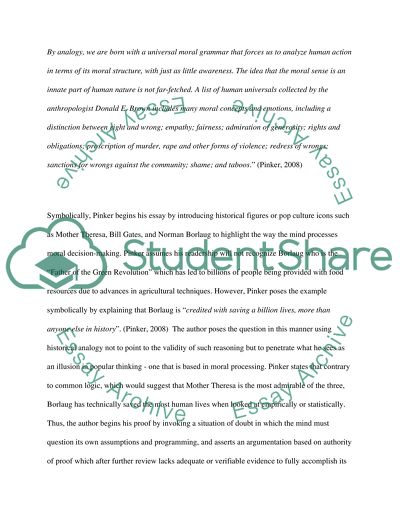Cite this document
(“Argument Analysis about The Moral Instinct by Steven Pinker Essay”, n.d.)
Retrieved de https://studentshare.org/miscellaneous/1575736-argument-analysis-about-the-moral-instinct-by-steven-pinker
Retrieved de https://studentshare.org/miscellaneous/1575736-argument-analysis-about-the-moral-instinct-by-steven-pinker
(Argument Analysis about The Moral Instinct by Steven Pinker Essay)
https://studentshare.org/miscellaneous/1575736-argument-analysis-about-the-moral-instinct-by-steven-pinker.
https://studentshare.org/miscellaneous/1575736-argument-analysis-about-the-moral-instinct-by-steven-pinker.
“Argument Analysis about The Moral Instinct by Steven Pinker Essay”, n.d. https://studentshare.org/miscellaneous/1575736-argument-analysis-about-the-moral-instinct-by-steven-pinker.


